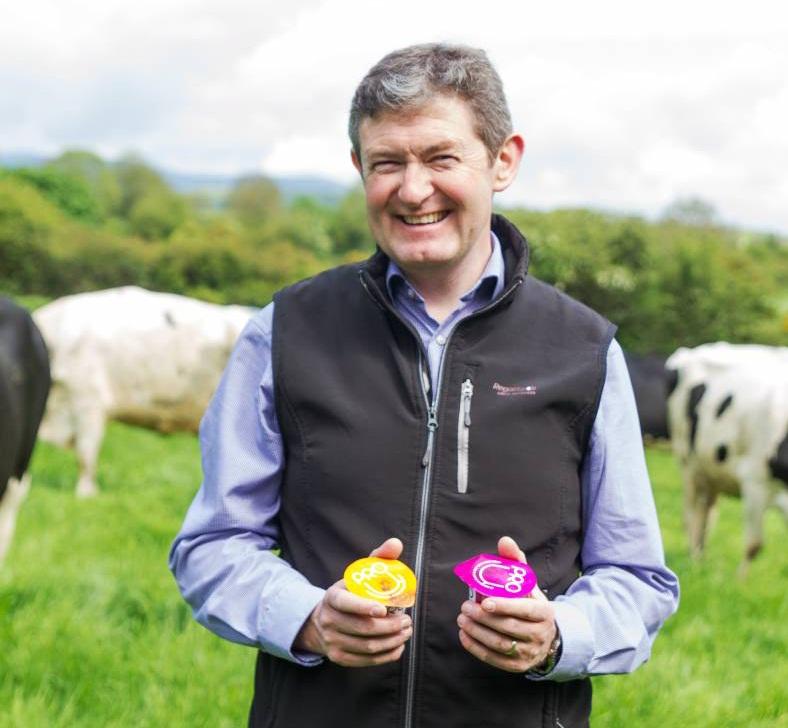Michael Murphy, long-time director of markets with Bord Bia, had been watching the development of the market for health and wellness products for years.
He was also aware of the need for good foods, having observed his parents’ diets in hospitals and how bone and muscle deterioration can occur over time without proper nutrition.
“Working in the food industry, I thought that I should be able to come up with something better,” he says.
ProU, M&J Nutrition Ltd’s Greek-style functional yoghurt containing protein, calcium and vitamin D, was launched in Dublin this June.
Currently the yoghurt is available in 12 Dublin SuperValu stores and 10 Tesco stores, with plans to ripple distribution out across the country in the autumn.
Wexford-born Michael started out with the idea of adding protein to yoghurt to provide extra health benefits, but soon added calcium and vitamin D to the mix.
This was because of focus group meetings with women for whom osteoporosis was a concern and who were fed up taking calcium tablets “which tasted horrible”.
“They said they’d be really interested if there was calcium in the product so that they could get their daily requirement in a more pleasant form,” Michael says.
80% of adults' daily calcium needs
“The products’ USP or unique selling point is that the fruit and natural varieties contain all the vitamin D you need for the day and 80% of an adult’s daily calcium needs as well as twice the protein level of normal yoghurt.”
The company had help in the development of ProU from Teagasc, Enterprise Ireland and Glanbia, who supplies the protein, calcium and vitamin D additives.
Michael also found joining the Food Works programme very beneficial for their business start-up.
“It’s run by Bord Bia, Teagasc and Enterprise Ireland and is an excellent programme for high-potential companies in the food industry.”
ProU yoghurt is made at Killowen Dairies in Co Wexford. From Wexford, Michael Murphy knew the Dunnes, who own Killowen, and the product developed over time during discussions with them.
Active for longer
“Ireland imports 60% of its yoghurts so we felt there was a space there for our new product that can help people like ourselves to be active for longer.”
Michael gave up his job in 2016 and has invested personal savings to bring the couple’s ProU dream to reality.
“We think it will go well. We spotlighted the product at the Bloom Festival and were delighted with the response. We were blown away by the questions people were asking and we ran out of spoons there was so much interest! The big question for people is how much sugar is in it. There’s 8% to 9% in the fruit version – a spoonful from the milk and a spoonful from the fruit preparation. While you don’t need a lot of sugar, you do need some.”
The couple worked really hard on getting the taste right, he says.
“It has to taste good as well as do good. You have to have a good texture also and get the fruit balance right.”
Bringing a new product to market isn’t easy, he admits, but you have to stick with it.
“We never felt like throwing the project out but at certain times things didn’t go to plan. It’s then you have to take a deep breath and stop and look for advice.”
Packaging clever – read as you eat
One of the challenges was getting the packaging right. Michael had been looking at packaging on his world travels for a long time before deciding on a design.
“We felt that we needed a good container that would look well on shelves because we won’t have a budget to advertise. With our container, you can read more information about the yoghurt as you eat down because the text on the inside of the cardboard wrap can be seen through the clear plastic container as you go.”
Michael has always aimed ProU at supermarkets.
“That’s where 80% of yoghurts are bought so you need to be there and tapping into retailers’ own distribution systems.”
ProU will be found in the fortified foods section of supermarket fridges.
“It’s about putting down the calcium now, not waiting until you have osteoporosis,” he says.
While the product is for those past their 20s, Michael is finding that young men are an important target market too.
“It’s one of the fundamental changes in Ireland in a generation – how young men now view looking after their health. It’s not just rugby players, it’s anyone playing competitive sport. They’re all looking at the role of protein and diet now.”






 This is a subscriber-only article
This is a subscriber-only article









SHARING OPTIONS: